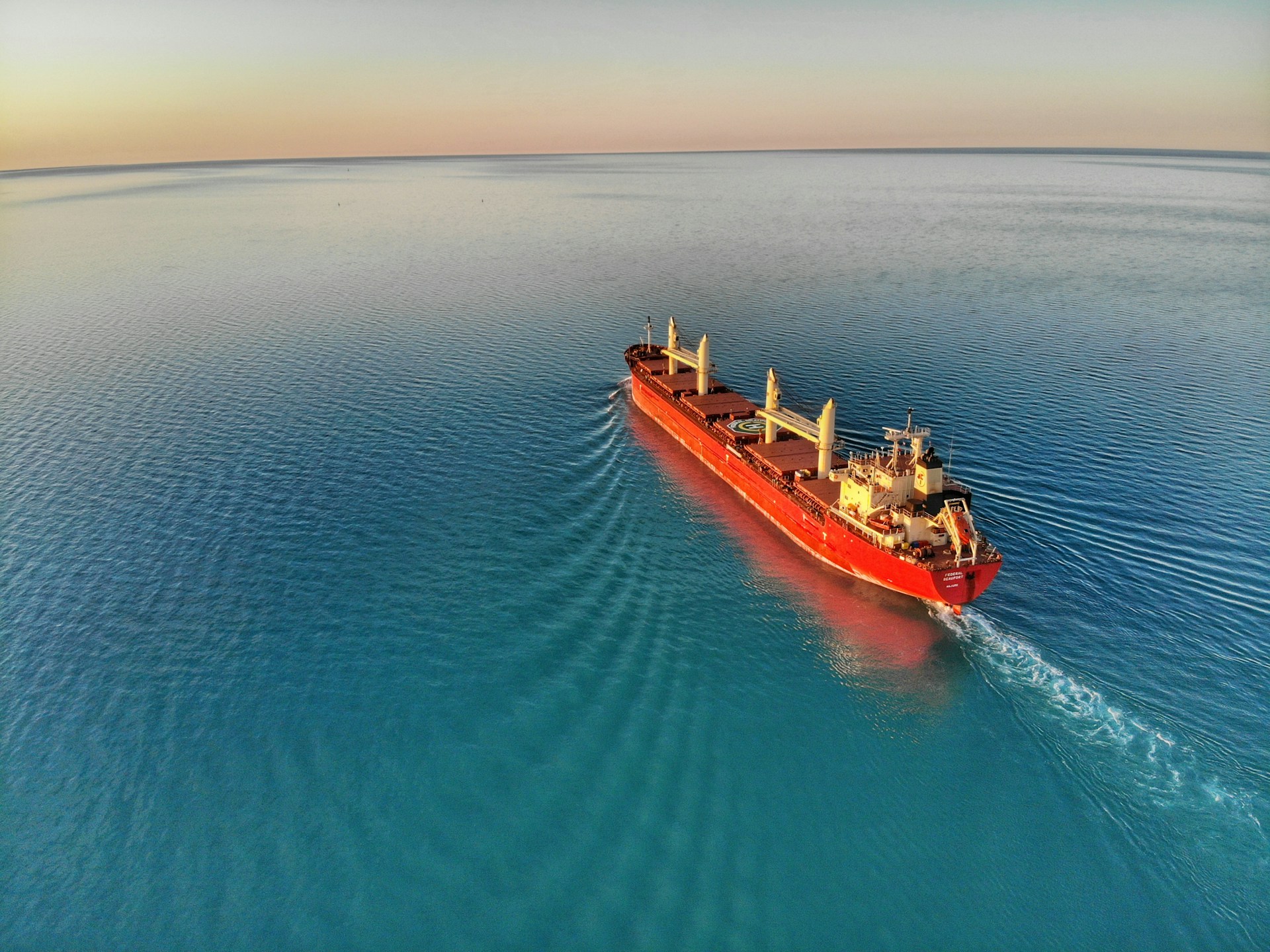A collaborative study published in Environmental Science and Technology indicates that using scrubbers to treat exhaust from heavy fuel oil may offer environmental performance on par with, and in some areas superior to, burning low-sulfur fuels in maritime shipping. The research, led by experts from MIT, Georgia Tech, and international partners, including the shipping firm Oldendorff Carriers, provides a comprehensive analysis of fuel processing, combustion, and emission control technologies. The published paper can be found here:
Stathatou, P. M., Petrunia, I., Barenthin, T., Gotsis, G., Jeffrey, P., Fee, C., Bergeron, S., Tsezos, M., Triantafyllou, M., & Gershenfeld, N. (2025). Marine Scrubbers vs Low-Sulfur Fuels: A Comprehensive Well-To-Wake Life Cycle Assessment Supported by Measurements Aboard an Ocean-Going Vessel. Environmental Science & Technology. https://doi.org/10.1021/acs.est.4c10006
The International Maritime Organization introduced a mandatory sulfur content cap in 2020 leaving shipping companies with several options.
- Switch to low-sulfur fuels such as marine gas oil.
- Use biofuels in limited supply.
- Install exhaust gas cleaning systems commonly known as scrubbers.
The study’s lifecycle assessment incorporated data from fuel production and processing, scrubber manufacturing and installation, and direct onboard emissions measurements taken during a weeklong voyage aboard a bulk carrier in China. This approach allowed the team to compare the environmental impacts across nearly 10 different categories; including greenhouse gas emissions, terrestrial acidification, and ozone formation.
“In our collaboration with Oldendorff Carriers to broadly explore reducing the environmental impact of shipping, this study of scrubbers turned out to be an unexpectedly deep and important transitional issue,”
Explained Neil Gershenfeld, an MIT professor, director of the Center for Bits and Atoms (CBA), and senior author of the study.
The analysis suggests that the additional processing required to produce low-sulfur fuels generates significant emissions. In contrast, while heavy fuel oil naturally contains higher levels of sulfur, its use in combination with scrubbers; technology already proven in land-based applications such as power plants, results in a reduction of sulfur dioxide emissions by approximately 97 percent. lead author Patricia Stathatou, an assistant professor at Georgia Tech said:
“Claims about environmental hazards and policies to mitigate them should be backed by science. You need to see the data, be objective, and design studies that take into account the full picture to be able to compare different options from an apples-to-apples perspective,”
A major component of the study was in-situ data collection. Researchers recorded detailed emission profiles aboard the Hedwig Oldendorff vessel operating out of Taicang, China. Onboard measurements compared the performance of scrubber-equipped heavy fuel oil combustion with that of low-sulfur fuel combustion under similar conditions. The study also included an analysis of the washwater discharged from the scrubbers, which is created when seawater is used to absorb sulfur oxides and other pollutants from the exhaust gases.
According to the report, the washwater—although containing byproducts like heavy metals and combustion residues—was found to be significantly diluted once released into the open ocean. Chemical concentrations measured were well below both International Maritime Organization (IMO) limits and the stricter guidelines set by regulatory agencies in the United States and Europe. This finding further supports the potential for scrubber systems to manage environmental impact effectively when evaluated over the full lifecycle.
The research provides data that could help policymakers and industry leaders better assess the comparative costs and benefits of available fuel options. While the use of low-sulfur fuels had been previously favored to meet environmental regulations, concerns about fuel availability and cost have made scrubber installations a practical alternative for many in the maritime sector.
Industry representatives have welcomed the findings. Scott Bergeron, managing director at Oldendorff Carriers and co-author of the study said:
“This study demonstrates the scientific complexity of the waste stream of scrubbers. Having finally conducted a multiyear, comprehensive, and peer-reviewed study, commonly held fears and assumptions are now put to rest,”
Future policy dialogue about environmental impacts must adopt an inclusive perspective above current tailpipe emission concentration as a standalone measure. The study recommends evaluating all options using comparative analysis which sees emissions produced during use as well as the comprehensive environmental expense of fuel production and processing with associated equipment production.

Hassan graduated with a Master’s degree in Chemical Engineering from the University of Chester (UK). He currently works as a design engineering consultant for one of the largest engineering firms in the world along with being an associate member of the Institute of Chemical Engineers (IChemE).



